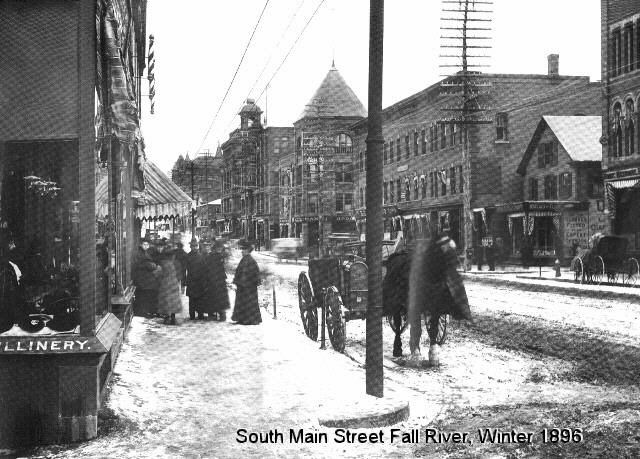
My Irish Ancestor: the Scenario
Nothing else provides the pleasure of playing detective as researching the family tree! I began the journey in the 1980s. It didn’t take long for me to “locate” my father’s father’s father, an Irish ancestor. He was born in Fall River, Massachusetts on the 29th of August in the year 1851. He was the son of Maurice and Mary O. Sommers.
Maurice1, my first-known Irish ancestor was born in County Limerick, Ireland, as was Mary. He migrated sometime before his intended wife did, who arrived in 1849. Michael was the first-born, quickly followed by John. The family did not remain in Massachusetts long. In 1860 and 1870, they are found in the Schuylkill County, Pennsylvania census.
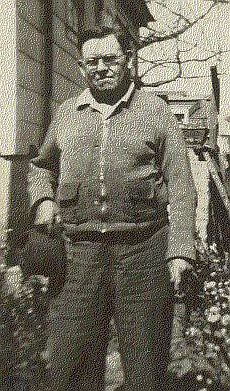
The First Surprise
The family is all together in 1860 and 1870. But they are ripped apart in 1880. Maurice is once again in Schuylkill County. His wife had probably died, along with one or two of his children. The oldest married and moved away. One or two had moved to Luzerne, including the one we are focusing on, John. Formerly, and now in Luzerne County, John was employed in the coal mines.
Why was Maurice, age 52, left to his own devices? Was it by choice? Was it because his family didn’t want to be around him? Maybe it was for economic reasons? The fact that they were not together will prove relevant to our conclusions.
The Second Surprise
I had learned much, but the beginning of a matter calls for a consideration of the conclusion of that matter. I wanted to know when my Irish ancestor John died, and what were the circumstances surrounding it. They proved to be shocking indeed. They included my second surprise, a very large surprise. Here is John’s obituary.
From2 the Wilkes-Barre Record of Friday, 24 Jul 1885, page 1…
“DROWNED IN THE RIVER.
A Capsizing Boat at Plymouth Causes the Death of Two Men.
A sad drowning accident happened at Plymouth last evening by which two men lost their lives and two families were left in entire destitution.
The facts of the case as learned by telephone are about as follows:
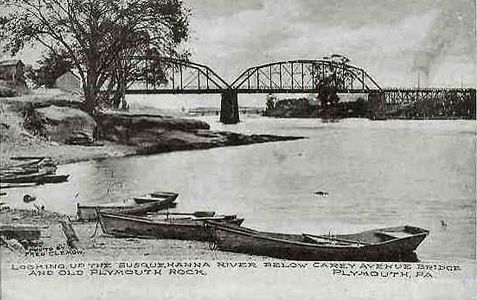
About six o’clock a party of four men, all somewhat under the influence of liquor, started to row across the river from a point just above the steamboat landing. They had with them a keg of beer and it is presumed were going to have a little picnic of their own on the other side. All four resided in Plymouth. Their names were William Sanders, aged about 40, married with three sons: John Summers, aged about 34, married with four children: Brave Hanlon, aged 22, single and a man that goes by the name of Megdec, also unmarried.
How it happened is not known but when the boat was about half way across it was seen to capsize and the men were plunged into the water. There were only a few persons on the bank but the alarm was at once raised. The struggles of the drowning men could be plainly seen from the banks, and their agonized cries for help were born loudly to the shore. Several boats were at once put out to their assistance, but before help could reach them Sanders and Summers had sunk to rise no more. Hanlon and Megdec were good swimmers and managed to reach the shore in safety.
Sanders’ body was recovered at once, but it was two hours before the body of Summers was recovered. It had gone to the bottom but was raised by the wash of a passing steamer. Sanders was a carpenter by trade, while Summers worked as a laborer in the Washington colliery. The Coroner was notified by telephone, and gave permission for the bodies to be taken to their homes in the lower part of town. He will go down and hold an inquest to-day.
Another account states that the names of the drowned were William Sanders and William Keefe, instead of John Summers as given above.”
My poor ancestor died at the tender age of 33, less than 5 years after the birth of my grandfather. Another example of how my family tree was nearly chopped down before I was born.
But it was the last sentence in the article that piqued my curiosity. One account listed my deceased great-grandfather as William Keefe, not John Summers! He had two names, one an alias. Was it simply a name made out of thin air, or was there at least some basis for that name. Further, why did he even have an alias?
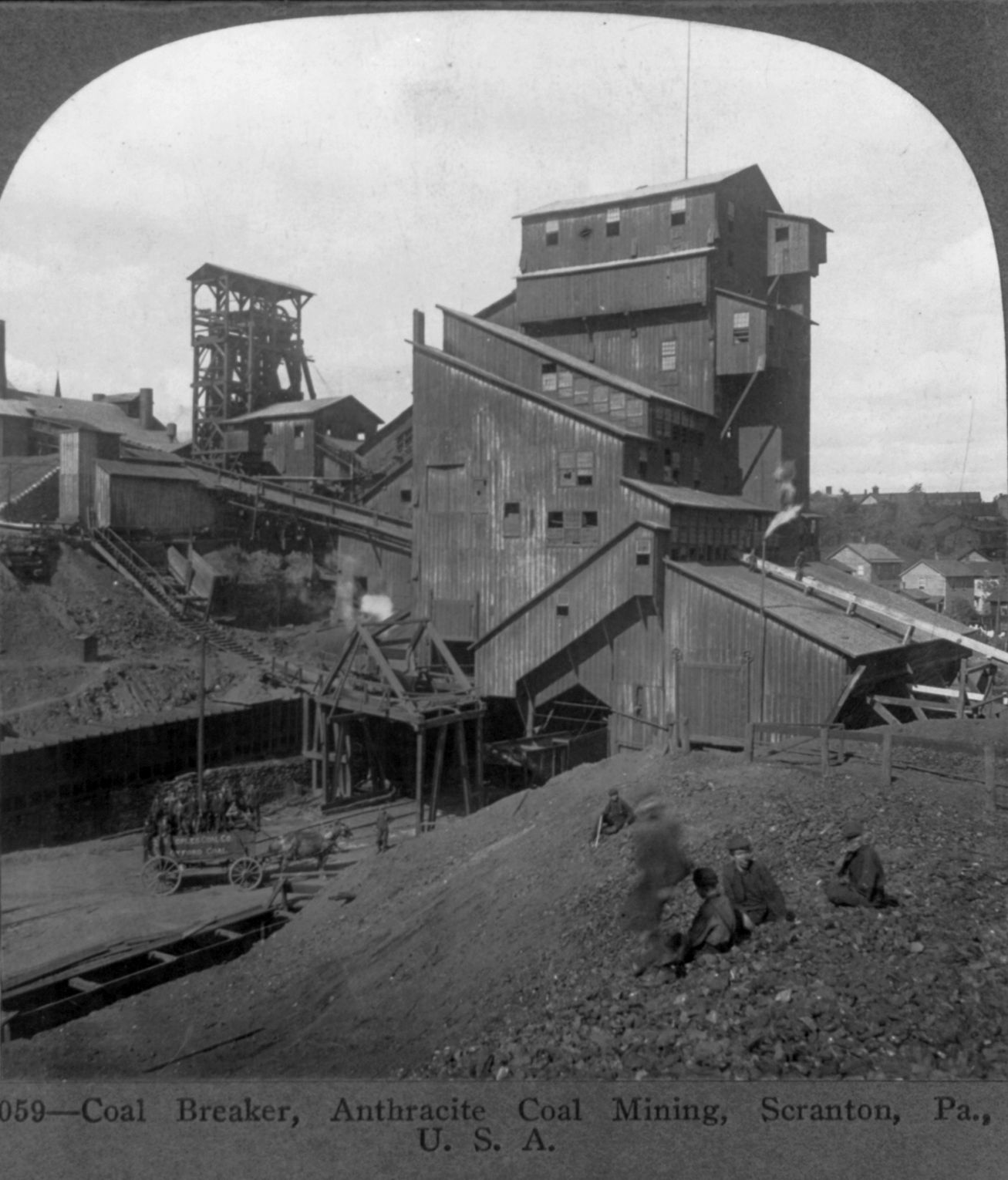
The Source of the Alias
Recall the introductory paragraphs of this article. Maurice Sommers was the husband of Mary O. But Mary O. what? Mary O’Keefe3. Apparently John used his mother’s maiden name as his last name, with the added precaution of changing his given name as well. But why take an alias at all?
The Reason for the Alias
Detectives hate pursuing a trail only to reach a dead end. And, to some degree, my search reached a dead end. But the mind won’t accept that. I wracked my brains until I arrived at a list of 3 possibilities. Here they are:
1. Miners were inherently poor. He may have adopted an alias to evade bill collectors.
2. The disbanding of the family may have been out of necessity, but the fact that the father was left on his own could suggest the father was no longer loved by his family. John may have used his alias to demonstrate this fact.
The first reason is perhaps the probable one. The second reason is not so satisfying. John could have changed his children’s names to Keefe as well, but he did not. In times past there was no stigma to such a change, as is obvious from my father’s changing our name to Summers.
But I mentioned 3 possibilities. What is the third?
3. John, as a coal miner in the mid-1800s could have, one way or another, been concerned about involvement with or avoidance of the Molly Maguires.4
The Molly Maguire men, a “secret” society, exerted influence over the anthracite coal miners of Pennsylvania, specifically the regions where John lived, during the time when he was employed. Quite a few of them were caught and hung. This possible explanation is unlikely to be the correct one. But it certainly is an intriguing notion.
Finally, I had a crazy notion come to me – just now – as I wrote this article…
Could the two men who survived the drowning incident that led to the deaths of the other two, including my Irish ancestor and great-grandfather, have been assigned to “do away” with them? Hm. Maybe I watch too many murder mysteries.
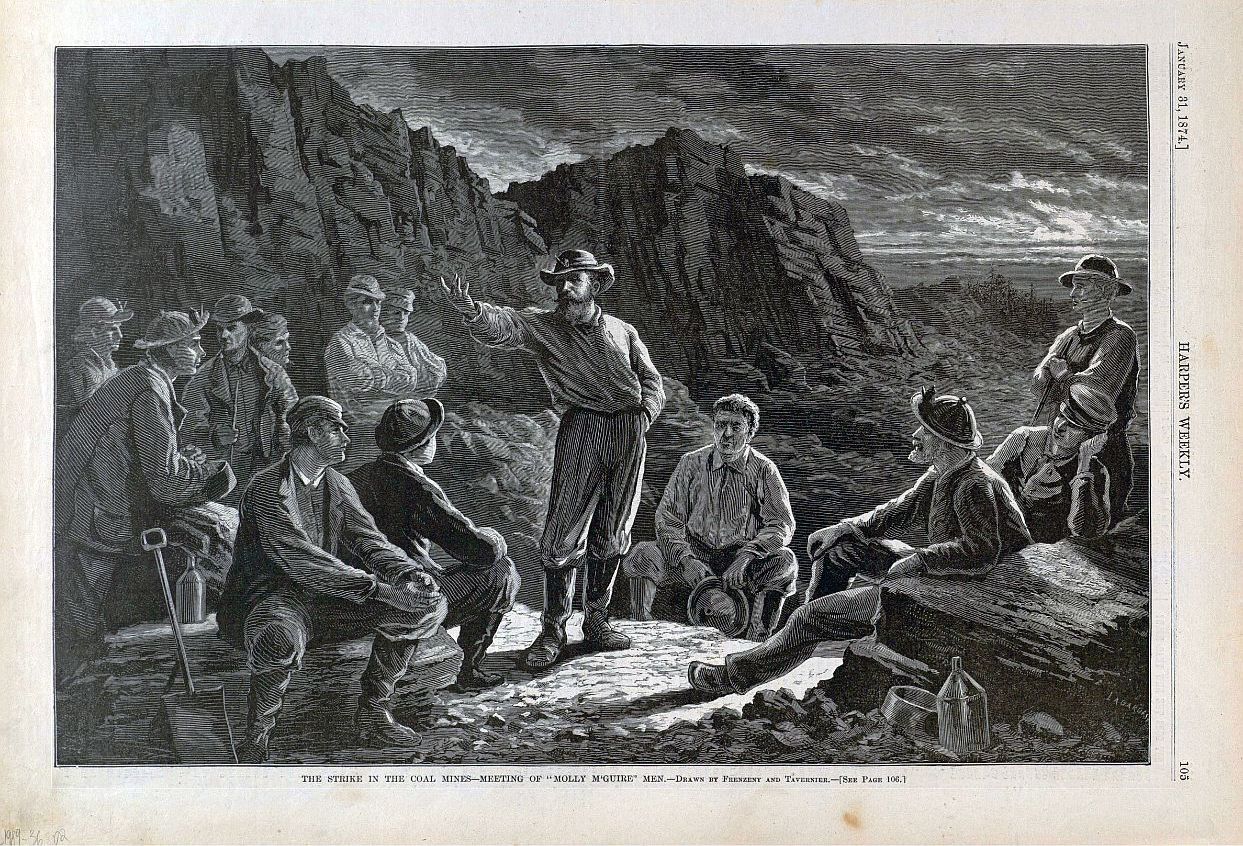
1 Sometimes listed as Morris, probably due to census transcribers, who were notoriously poor spellers.
2 Provided by professional genealogist, Norman Douglas Nicol, PhD
3 Sometimes listed as Keefe or Keif
4 For an excellent, concise history of the Molly Maguires, see this Penn State article.
Note: You might also enjoy The 1793 Terror: The Yellow Fever Epidemic

Very interesting, indeed. Mysteries abound.
One of the few books I actually read back in the day was the popular one documenting the history of The Molly Maguires. A good read.
Wow, a puzzle indeed and one that is very hard to solve at this distance in time. It’s always interesting to find out what our ancestors were up to!
I too have a similar situation. My Great-Grandmother’s last name was Newman. However, after a lot of research, I determined that her maiden name had actually been Sullivan and that Newman was her mother’s maiden name. She apparently started using that as her maiden name after immigrating to the USA when she was already married and therefore that made no sense to me. Since her married name already made it unlikely that anyone would know her original maiden name, why change it? I later found one of her brothers, John who also changed his name when he married. His civil marriage record actually shows both names, though afterward he always only went by Newman. I know another genealogist who also found this situation. Two of the brother’s in the family she was researching changed their names as adults to their mother’s maiden name and two brothers did not. You can find my research paper on my Great Grandmother and her brother on the Family Tree on FamilySearch:
https://bit.ly/3qgja6A